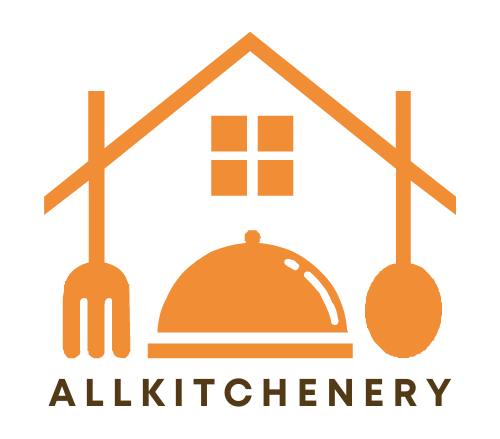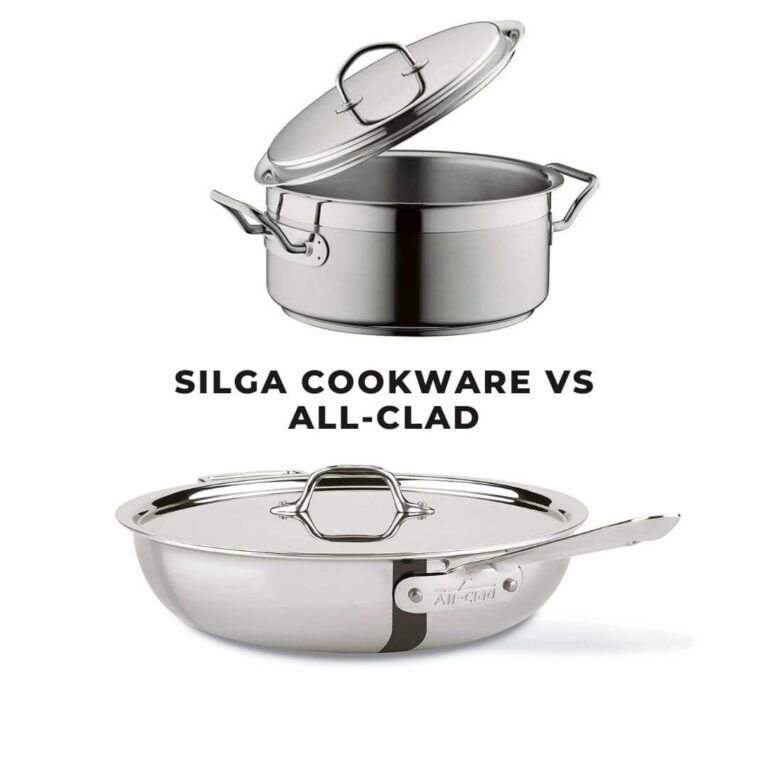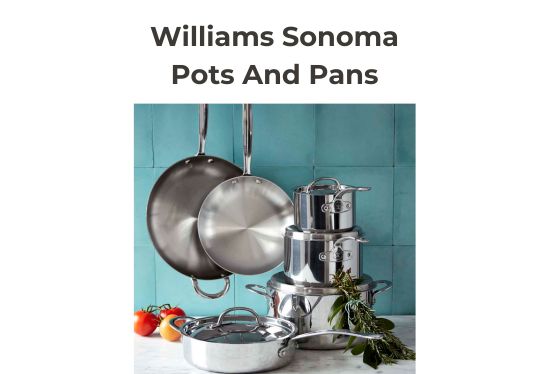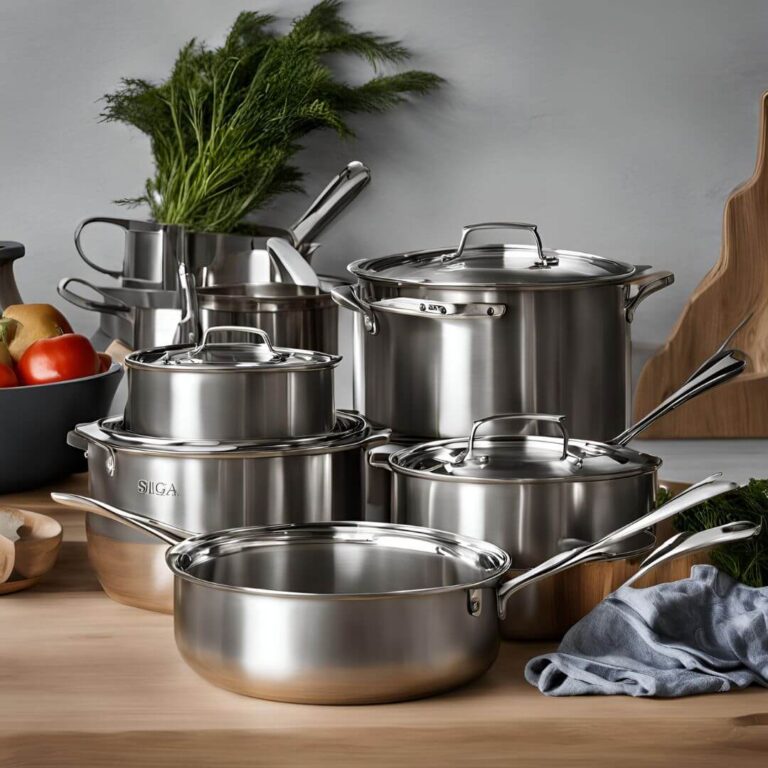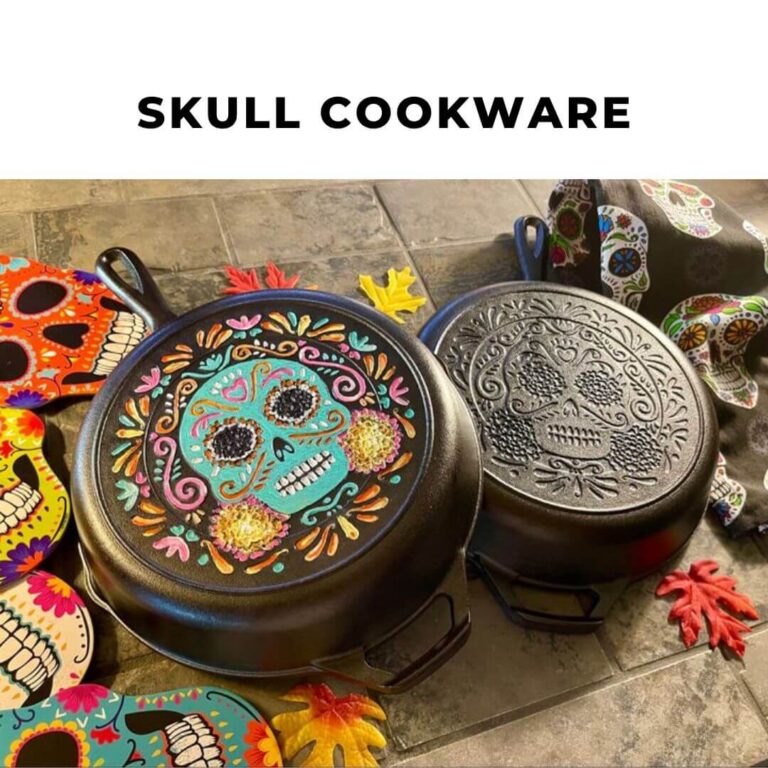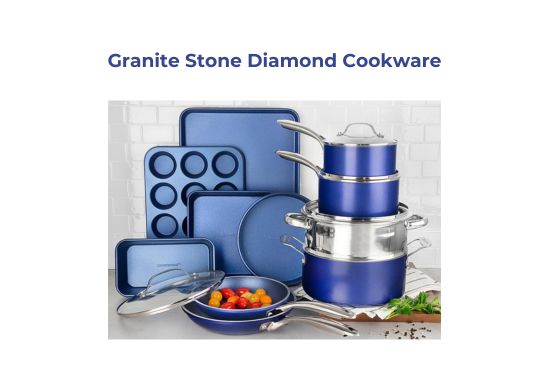Aluminium Cookware Banned In Europe: Know The Reasons
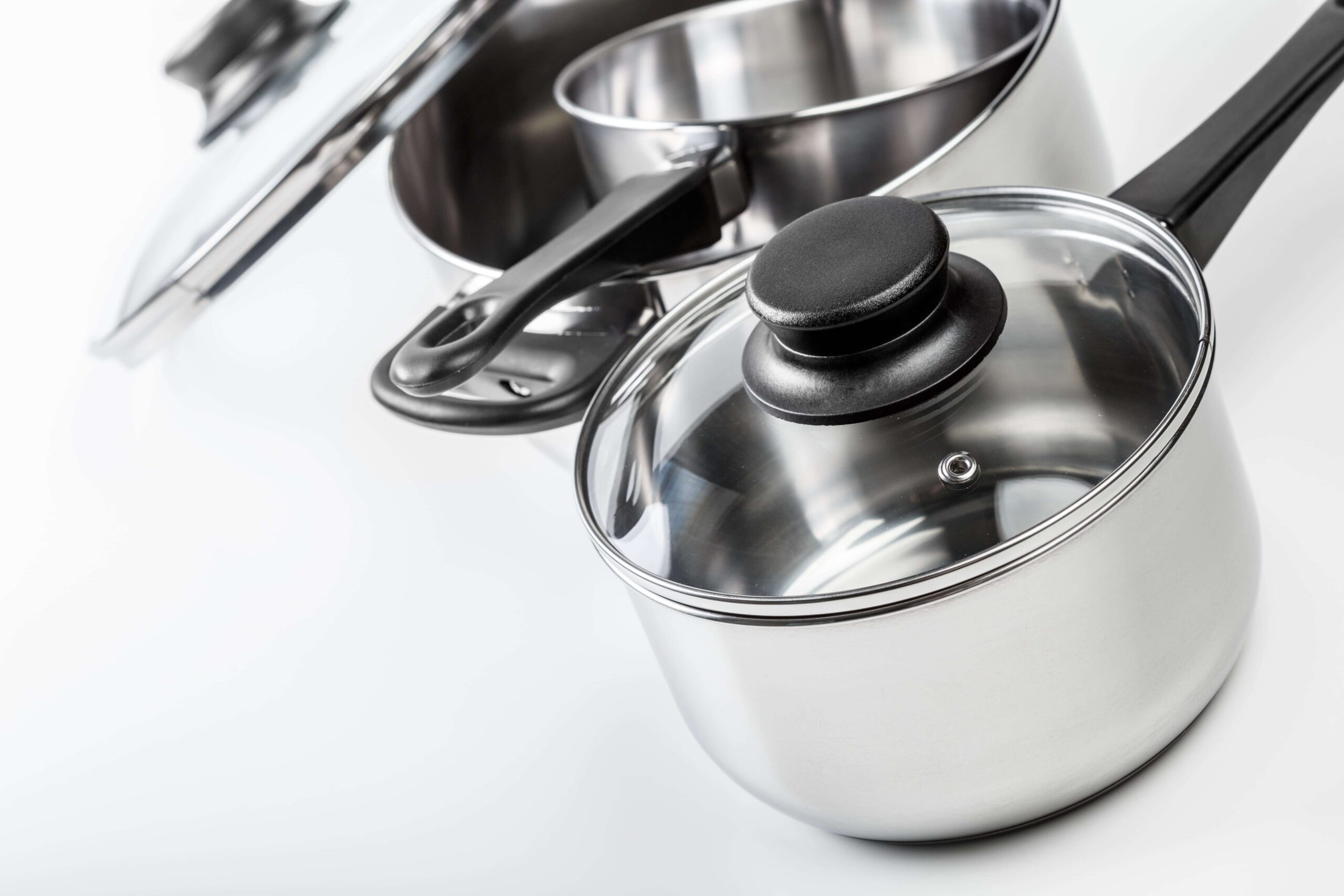
Because aluminum cookware is widely available and used everywhere, it’s always been in high demand. However, there’s a downside to aluminum cookware that many people need to learn about. It has serious disadvantages, leading to being banned in about six European countries.
In this article, you will find why Aluminium cookware banned in Europe. You will find some advantages and disadvantages of this cookware.
What Is Aluminium Cookware?
Aluminum cookware is pots, pans and baking sheets made from aluminum metal. It is preferred because it is light and dissipates heat well. Aluminum heats food evenly, preventing uneven cooking spots. But if it is pure aluminum, it can give a strange taste to food if it is acidic.
So, most aluminum cookware has a non-stick or anodized coating to seal it off. Some are concerned that aluminum could leach into food, but the new coating makes it safe. Overall, it’s an inexpensive and good choice for many home cooks.
The 8 Reasons Why Aluminium Cookware Banned In Europe:

Aluminum pots and pans are widely used worldwide, even in parts of Europe. But sometimes, they are not allowed to be used because people are concerned about safety. Here are eight reasons some European countries have rules against using aluminum cookware.
1. Health Concerns:
Aluminum can leach into food, especially when cooking sour foods. This mixture can be bad for health, especially if it happens too much over time. Sour foods like tomatoes or oranges can cause aluminum to build up in the food more quickly. So, avoiding using aluminum cookware for a long time is better to stay safe and healthy.
2. Toxicity:
Some studies show that having too much aluminum in your body can lead to brain problems like Alzheimer’s disease. These studies suggest that too much aluminum can cause brain problems. Alzheimer’s disease is one of these brain problems. So, it’s important to be careful about how much aluminum you consume to reduce your chances of getting these conditions.
3. Regulations:
European regulators set rules about how much aluminum can get into our food from pots and pans. These rules mean that certain types of aluminum cookware are restricted. The goal is to stop too much aluminum from getting into our food. So, certain aluminum pots and pans are prohibited in Europe to ensure our food remains safe.
4. Acidic Foods:
Cooking sour foods like tomatoes or citrus dishes in aluminum pans leaches aluminum into your food. This can increase the likelihood of aluminum in your food, which is not good. So, using aluminum containers for sour food can harm your health. It is safe not to cook these foods in aluminum containers to reduce the chance of aluminum in your food.
5. Reactive Properties:
Aluminum reacts strongly with some foods, making them taste and look strange. This often happens with sour or salty foods. If you cook these foods in aluminum pans, they may need to come out properly. It is smarter to use different pots and pans for this type of food to prevent unexpected changes in taste and appearance.
6. Food Safety Standards:
European Union regulations on keeping food-safe materials. They have made strict rules for aluminum cookware to keep people safe. The goal is to protect anyone using these products from harm. That’s why they’ve tightened aluminum cookware rules to ensure everyone stays safe.
7. Environmental Impact:
Making and getting rid of aluminum pots and pans can harm the environment. It takes a ton of energy and creates a pile of garbage. This can cause serious problems for nature. So, we need to consider how aluminum cookware affects the environment.
8. Alternatives Available:
As safer alternatives such as stainless steel, cast iron, and ceramic cookware exist, people in some European places are using less aluminum cookware. This is making the rules against aluminum cookware more stringent. As other good choices are available, people do not need aluminum cookware as much. This is why fewer people use aluminum cookware in some parts of Europe.
3 Advantages Of Aluminium Cookware:
Aluminum cookware has several advantages, making it a popular choice in kitchens worldwide. Here are three key benefits of using aluminum cookware.
1. Excellent Heat Conduction:
Aluminum is famous for good heat dissipation, so your food cooks evenly. This helps ensure that your cooking turns out just right every time. You’re less likely to have parts that cook faster or slower than others with aluminum cookware.
2. Lightweight:
Aluminum cookware is much lighter than metals like cast iron or stainless steel. This makes it easy to use in the kitchen, especially for those who struggle to handle heavy objects due to weakness or mobility difficulties.
3. Affordability:
Aluminum pots and pans are generally cheaper than copper or stainless steel. Because they cost less to make, they are affordable for many people. So, you can get good quality cookware without spending too much money.
3 Disadvantages Of Aluminium Cookware:
Although aluminum cookware offers several advantages, it has some disadvantages. Here are three disadvantages of using aluminum cookware.
1. Reactivity With Acidic Foods:
The metal can mix with the food when you cook foods like tomatoes or citrus fruits in aluminum containers. This can make food taste metallic and release aluminum, which may not be good for health.
2. Prone To Dents And Scratches:
Although aluminum cookware is strong, it can be dented, scratched, or damaged. This often happens if you handle it roughly or use harsh cleaning methods. For this reason, aluminum pots and pans may not last as long as you would like.
3. Non-Compatible With Induction Cooktops:
Many aluminum pots and pans cannot be used on induction cooktops. These cooktops use magnets to generate heat, and aluminum is not magnetic. For this reason, aluminum cookware may not work well in kitchens with modern induction stoves.
Related Questions:
Why Is Aluminum Cookware Banned In Some Parts Of Europe?
Some places in Europe do not allow aluminum cookware because they are concerned about health issues. Aluminum can leach into foods, especially when cooking sour foods. Having too much aluminum in your body can lead to brain problems like Alzheimer’s disease.
To keep people safe, European regulators have set rules to limit how much aluminum can be added to food from cookware. It helps protect everyone from potential health hazards.
How Can I Ensure That My Cookware Meets European Safety Standards Regarding Aluminum?
To ensure your cookware is safe according to European regulations on aluminum, check the labels to say it follows EU regulations. Look for signs or certifications that it looks safe.
You buy cookware from trusted brands following safety rules. Also, read the product information carefully to see if it meets the specific limits for aluminum set by European regulators.
Conclusion:
The ban on aluminum cookware in some European countries shows how important it is to keep people safe and healthy. Although aluminum cookware is cheap and easy to use, it can be hazardous to health and the environment. That is why it is regulated. By choosing safe options and following strict safety rules, people can ensure that they stay healthy and help the environment.
